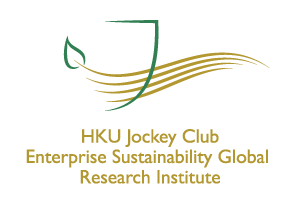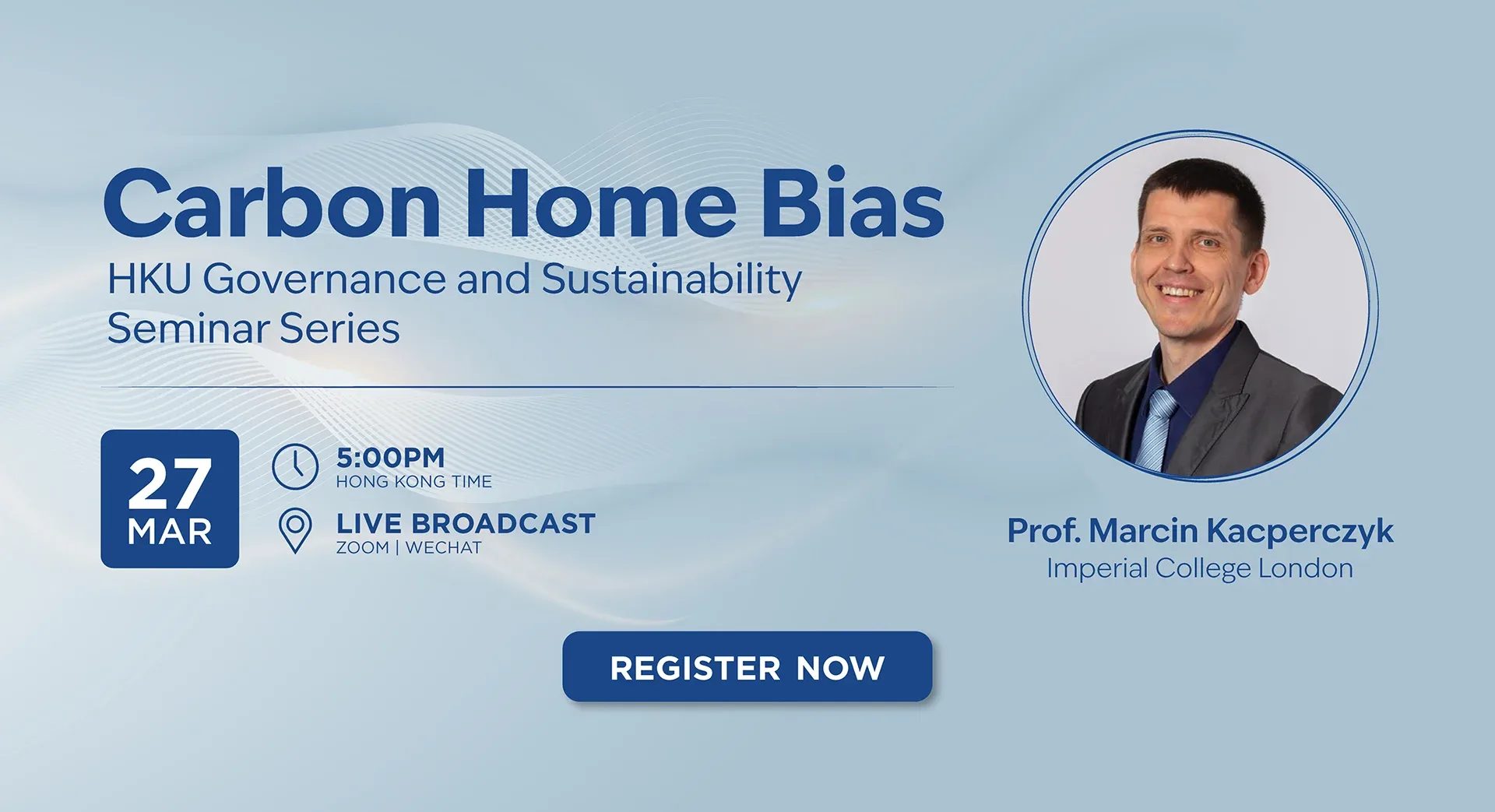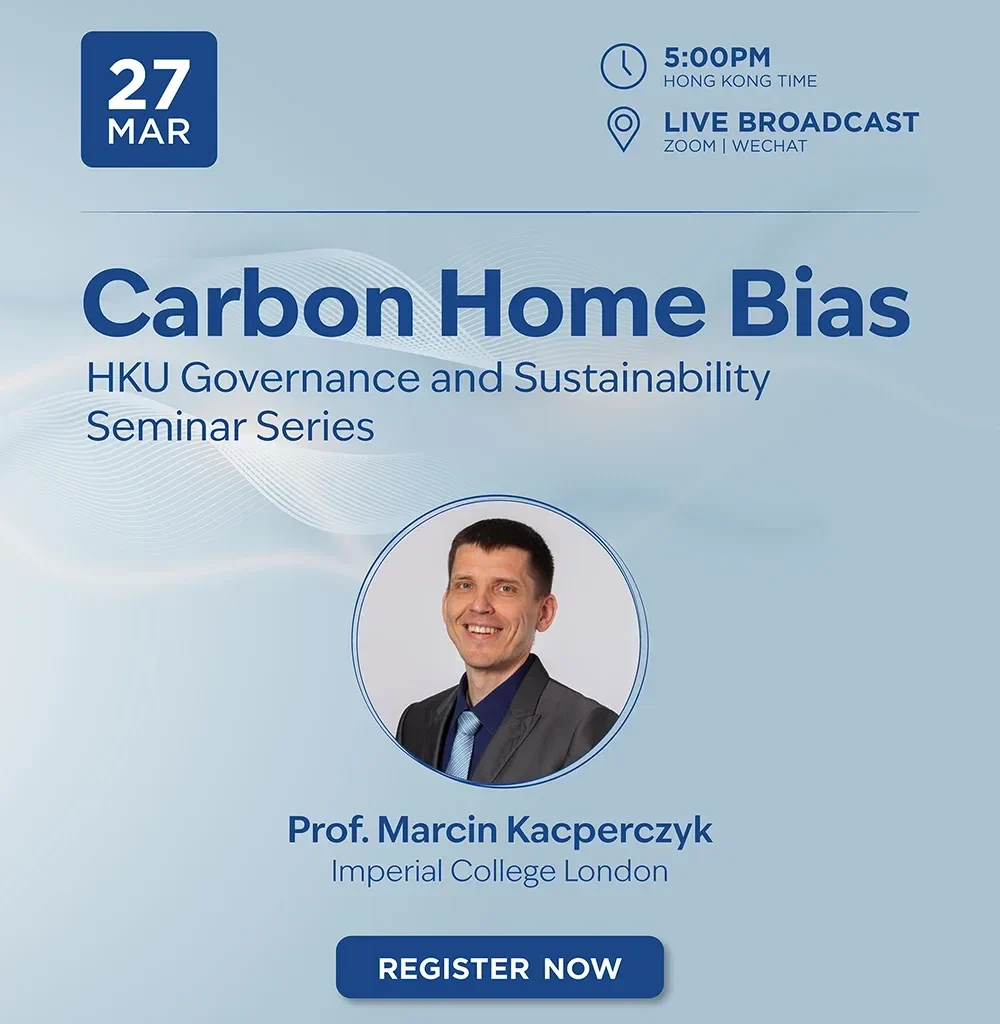
HKU Jockey Club Enterprise Sustainability Global Research Institute
World-Class Hub for Sustainability
Virtual Seminar
HKU Governance and Sustainability Seminar Series
Thursday, March 27, 2025
Carbon Home Bias
Date and Time
Thursday, March 27, 2025 · 5PM HKT
Format
Online (75-minute online seminar)
Speaker & Moderator

Speaker
Prof. Marcin Kacperczyk
Imperial College London
Marcin Kacperczyk is a Professor of Finance at Imperial College London with research interests in the areas of sustainable investments, climate finance, information economics, financial intermediation, and financial stability. He is a Research Associate at the Center for Economic Policy Research and the managing editor of the Review of Finance. He is a past holder of a European Research Council research grant and former President of the European Finance Association.
Please refer to www.kacperczyk.net for his CV and more details.

Moderator
Prof. Thomas Schmid
HKU Business School
Thomas Schmid is an Associate Professor of Finance at the University of Hong Kong. Prior to his current role, he worked as a Post-Doctoral Researcher at the Technical University of Munich. His primary research focus is empirical corporate finance, with special interests in energy finance, climate finance, and corporate governance. His work has been published in various prestigious journals, including the Review of Financial Studies, the Journal of Financial Economics, the Journal of Accounting and Economics, Management Science, and Research Policy.
Please refer to www.thomasschmid.org for his CV and more details.
About This Seminar
This seminar features Prof. Marcin Kacperczyk from Imperial College London, sharing insights from his working paper titled “Carbon Home Bias”.
Paper Abstract
We undertake a global analysis of institutional investor portfolios and find widespread underweighting of companies with higher carbon emissions, both in levels and intensities. This underweighting is largely driven by foreign companies with high carbon emissions, both at the intensive (tilting) and extensive (exclusion) margins. Domestic firms with high emissions are overweighted but by a smaller magnitude. These results reveal a bias for domestic companies with high carbon emissions. The carbon home bias is stronger in settings where institutions have tighter business connections, in countries with weaker social norms regarding climate crisis, and where the political environment is more polarized.
Bolton, Patrick and Eskildsen, Marc and Kacperczyk, Marcin T., Carbon Home Bias (January 28, 2024). HKU Jockey Club Enterprise Sustainability Global Research Institute – Archive, Available at SSRN: https://ssrn.com/abstract=4708844 or http://dx.doi.org/10.2139/ssrn.4708844
The HKU Governance and Sustainability Seminar series is organised by the HKU Jockey Club Enterprise Sustainability Global Research Institute.



